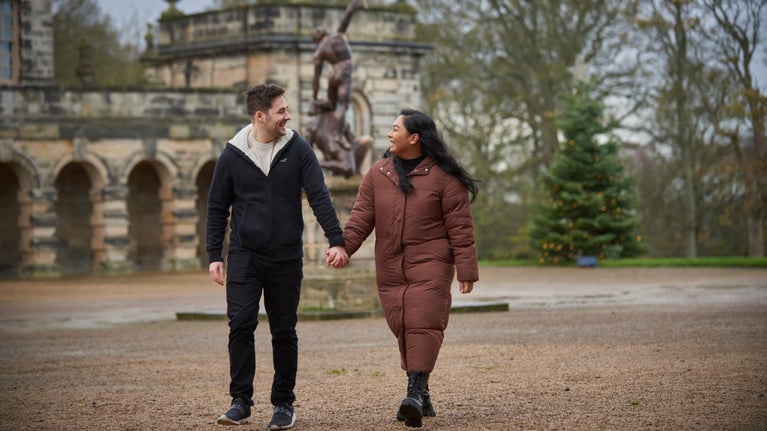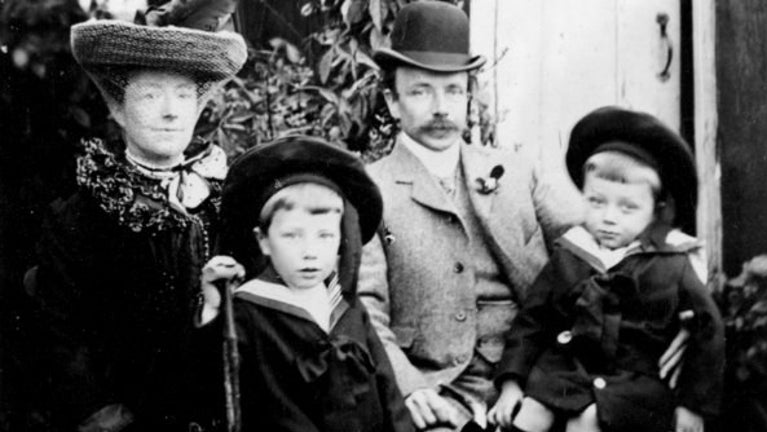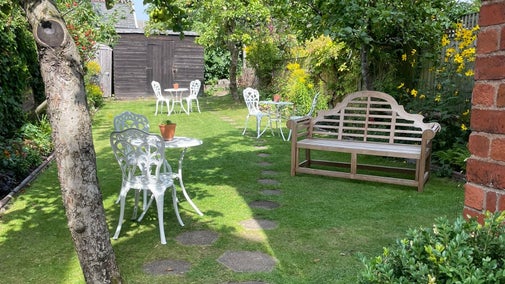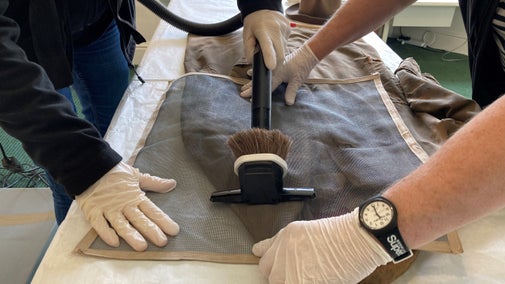
Become a member
Join today and help protect nature, beauty and history – for everyone, for ever. Enjoy access to more than 500 places with National Trust membership.

Mr Straw's House is the quintessence of Edwardian success of a family that had moved from living 'above the shop' in the busy Market Place, to a semi-detached home in fashionable Blyth Grove, an exclusive private road set above the town centre.
William Sr, Florence, William Jr and Walter were a family that valued commercial skill, hard work and academic endeavour, and sought to reflect their new social status through their home. While no expenditure was wasted, neither was any spared in perfecting it to Florence Straw’s taste. In the socially fluid environment of the early 20th century, this is what success looked like.
Yet the survival of this Edwardian dream is far from typical. Surging self-confidence and ever-changing fashions of this age of consumerism didn't effect Endcliffe Villa, 5 Blyth Grove. After the passing of their parents, William Jr and Walter Straw saw no need for any modifications. As the world around them changed with accelerating vigour, the sons carried on as they always had done.

William was born in 1864 in Sutton-in-Ashfield, to a family of potters. He moved to Worksop in 1886 to work with his brother, Benjamin, who had a grocer shop. Three years later, William bought his brother out and ran the business alone.
By 1903, the shop was doing so well that he was able to buy the building, together with the two adjacent inns and the yard behind. William added a flower and vegetable seed business to his grocery enterprise in 1898.
In 1896, he married Florence Anne Winks and the pair had three children, William (born 1898), Walter (born 1899) and David (born 1901). After living above the shop, the family moved to Endcliffe Villa, 7 Blyth Grove in 1923.
At home, William was a keen gardener, a passion he passed down to his sons. In 1932, at the age of 67, William died suddenly of a cerebral haemorrhage whilst stooping to tend to a plant.
Born in the same year as her future husband, Florence was a spirited young girl, educated at Dalestorth House, a girls boarding school near Mansfield. Outside school, Florence took cookery and sewing classes and went on to teach at the local Sunday School.
Florence was the daughter of a prominent Worksop tradesman called David Wall Winks, whose butcher's shop, on the corner of the Market Place in Worksop, was opposite the Straw's grocers.
Her marriage to William was a grand occasion celebrated in Worksop, and family life was the making of her. Her scope for home-making above the shop was necessarily limited, however, moving to Endcliffe Villa gave her the chance to decorate in her own style.
Florence enjoyed playing the piano, embroidery and art. She was a tiny, determined figure whose stamp on her family of men is as evident in Mr Straw’s House today as it was on the day she died, in 1939, after a short illness.

The eldest son, born in 1898, William Jr was educated at Edward VI Grammar School, Retford and King's College, London. His education was disrupted by conscription to the army during the First World War, being demobbed in 1919.
William went on to teach at City of London College and lived in London until Florence passed away. Moving back to Worksop, William took up the helm as housekeeper, championed causes he was interested in and served on a number of local committees. He was an academic, historian, book collector and campaigner, and wrote a history of St John's Church in Worksop.
As he grew older, William became less sociable, retiring behind the net curtains of Endcliffe Villa. William was admitted to hospital in 1985 after falling down the stairs at the house. He died in 1990 at the age of 92, having been unable to return to the home that was the private centre of his being.
Walter was the middle child, born in 1899. Like William, Walter was educated at local schools, before being conscripted into the army.
After passing his grocers exams with distinction in 1920, he joined the family business, which he ran until 1962. The shop closed on 3 March after 76 years of trading.
Walter was very involved in grocer associations, was an amateur archaeologist and a keen dancer. He also enjoyed gardening, growing dahlias and propagating cacti in the greenhouse in the back garden. Walter died in hospital in Worksop in 1976.
Born in 1901, David was the third son of William and Florence. He died in 1903, aged only two. Infant deaths were still commonplace then, which perhaps explains why this tragedy passed largely unremarked in family annals.

Join today and help protect nature, beauty and history – for everyone, for ever. Enjoy access to more than 500 places with National Trust membership.
Find out more about this unassuming red-brick semi which, once inside, reveals a house frozen in time filled with a treasure chest of objects and memories from inter-war Britain.

Find out about the great outdoors both near and far through the Straws’ love of cacti and homegrown produce, and their interest in walking through town and the local rights of way.

From daily cleans to deep cleans and knitted slippers to coal bags, find out how the team care for the 30,000 objects squeezed into this ordinary house, but extraordinary home.
